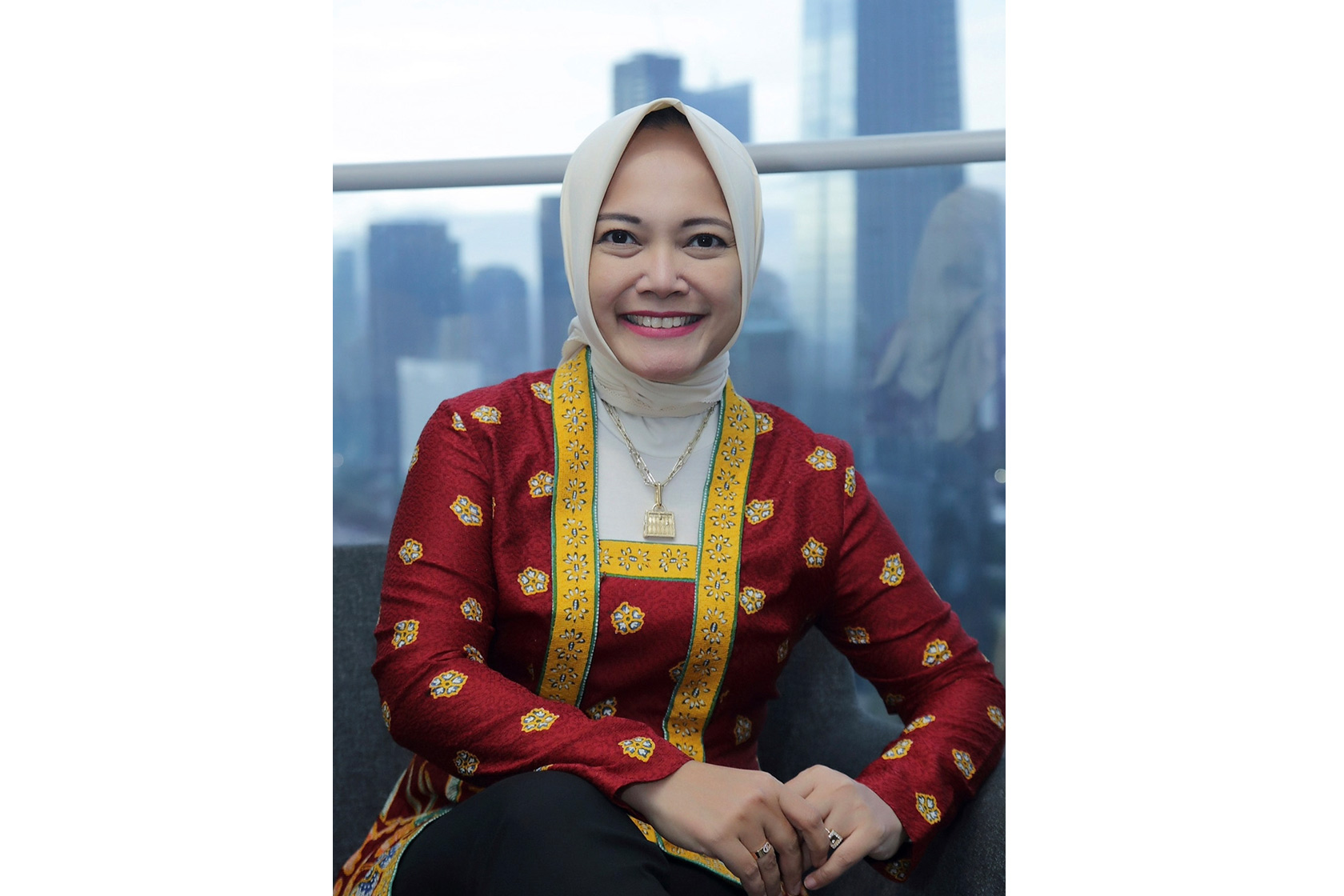When it comes to digital transformation in Indonesia, the contribution of Sri Safitri cannot be underestimated. In the past 20 years or so, as she climbed the career ladder in the telecommunication industry, she helped develop digital ecosystem and platforms across the country. This earned her the moniker “Srikandi Telkom”, referring to the heroine in Mahabharata epos.
Fitri, as she is affectionately called, is currently the Head of Education Ecosystem at state-owned telecommunication company Telkom Indonesia. She was previously the Deputy Executive Vice President Customer Experience & Digitalisation - Chief Digital Business Office, where she focused on improving customer experience, which in laymen’s term, means customers’ feelings when interacting with a product or a company.
“Customer experience is key to surviving in this digital transformation period. In this era of service, customer experience is the ultimate recipe for companies to sustain in the long run,” said Fitri, who chairs the Indonesia Customer Experience Professional and deputy chairs the Indonesia Cyber Security Forum.
Indonesia has seen quite a leap in terms of customer experience, she said, particularly in the transportation sector.
“Ten years ago, we didn’t think motorcycle taxi drivers could use their smartphones to receive the order, and customers could track them and pinpoint their location when they will arrive and so on. This is part of and a key to customer experience—the transparency of service provision,” Fitri said.
“From provider’s point of view, we can observe user behaviour and promote products based on the behaviour. That’s what we call digital technology utilisation based on data intelligence or big data. Customers are no longer disturbed by irrelevant ads,” she added.
The main drawback of the situation is data privacy, which becomes a paradox. On the one hand, companies want to provide security for customers, but that would be difficult if they also want to provide a good customer experience, Fitri said. If we want to provide a good customer experience, companies must offer convenience and comfort, and technology practitioners are expected to be able to balance that, she asserted.
“At the heart of it is trust; how we earn the trust of customers. There are many ways to ensure that, such as by building communication and empathy between service providers and customers,” said Fitri, who has two masters degrees in telecommunications engineering from Cable & Wireless College in Coventry, the United Kingdom, and RMIT University in Melbourne.
Unfortunately, she said, Indonesia still lags behind in terms of customer experience and cyber security, where only a few companies implement the measures systematically. Developed countries have reached the level of citizen experience to measure public service provided by the governments, Fitri asserted.
“The ball is in the companies’ ability to adopt technology and the government’s ability to make digital infrastructure widely available in the country,” she said.
Walking Down the Off the Beaten Path
Fitri talks about technology with infectious rigour. Science and technology have been her passion since early on, as she had always preferred math and science to other subjects. But she also noticed the gender bias in science, technology, engineering, and mathematics (STEM), which was deemed unsuitable for girls. When she enrolled in Telkom University in Bandung, West Java, majoring in electrical engineering, the bias felt more obvious.
Of the 1,000 students during her Class of 1991, only 100 were girls—the ratio found at other STEM universities such as the prestigious Bandung Institute of Technology (ITB). The situation led her to write an English poem entitled The Road Not Taken, which won a poetry competition back then. Much like the poem by Robert Frost with the same title, Fitri urged girls to go down the path they wanted, even if it was more solitary.
“Because of the (patriarchal) culture, many girls think that STEM is not for them. At home, we are taught since we are little that our place is in the domestic realm. This culture and mindset must be fixed if we want more women in this sector,” Fitri said.
The situation persisted when she studied in the UK and Australia, where women remained a minority in the STEM field. When she joined the workforce at Telkom, 35-40 per cent of her peers at the entry-level were women. But the percentage dropped to 20 per cent at the managerial level, and less than ten women occupied the C-level positions until five years ago, she said.
“In Telkom and other SOEs, the SOE Minister has implemented the 25 per cent quota for women. Ever since then, more women have been in the highest positions. Indeed, there should be affirmative action by the government to achieve inclusivity and gender equality,” said Fitri, who is the first woman that leads the Telkom University Alumni Forum (FAST), whose 70,000 members are spread in over 30 countries.
She felt privileged by the support from her family for her career, something she hoped could be the case for other women.
Learning Inclusivity, Leadership in Australia
Obtaining a masters degree through Telkom’s scholarship at RMIT in 1996, Fitri gave credit to the Australian education for not only teaching her about technological advancement necessary for her line of work but also about equality.
“I had the amazing opportunity to teach Calculus to undergraduate students of RMIT. Moreover, I was also hired to be a note taker for a deaf medical student coming from India. It was an unforgettable experience. People with disabilities are treated equally and are given access to education, something that remains an issue in Indonesia,” said the mother of two, whose children follow in her footstep to study computer engineering.
Years later, Fitri received a scholarship to undertake an Australia Awards Short Course with the theme of “Transformational Business Leadership: A Course for Outstanding Alumni of Australian Universities.” To this day, she is impressed at how efficient the Australian government and universities are in tracking alumni and providing plenty of relevant programs for them, such as leadership training that was highly useful for a woman leader like her and other colleagues from different countries.
“It shows that there are a lot of opportunities for women to advance in this (STEM) field. More investors are also looking for startups co-founded by women,” Fitri said.
“We need to stop thinking that STEM is not for women. Women in customer experience are less than ten per cent, in Artificial Intelligent is ten per cent, and there are so few of them in the technology sector. Whereas women show better performance in this field when they are free from gender bias, they can produce more ethical machine learning.”


 Sri Safitri Leading the Journey for Women in STEM on the Road Not Taken
Sri Safitri Leading the Journey for Women in STEM on the Road Not Taken
